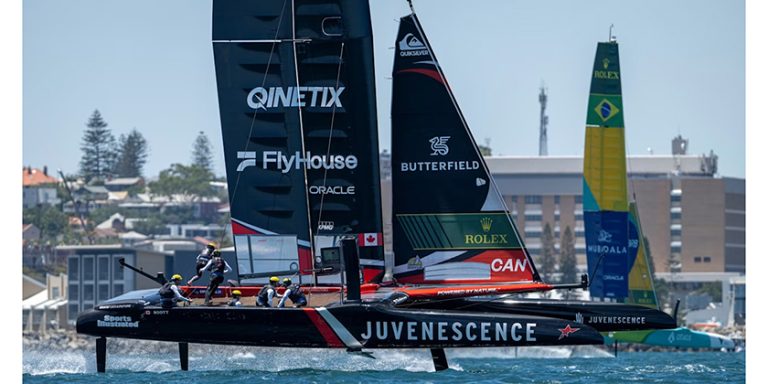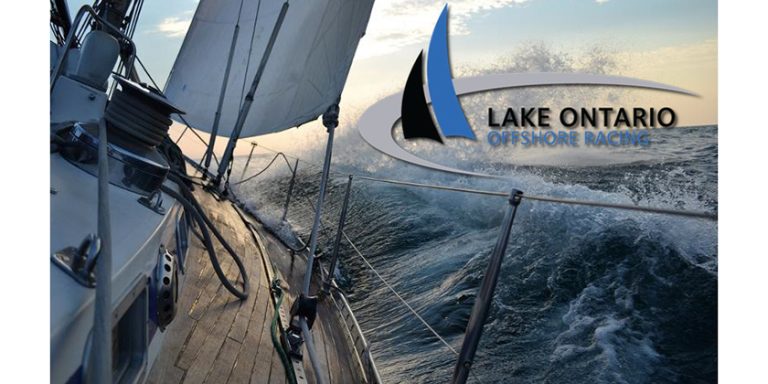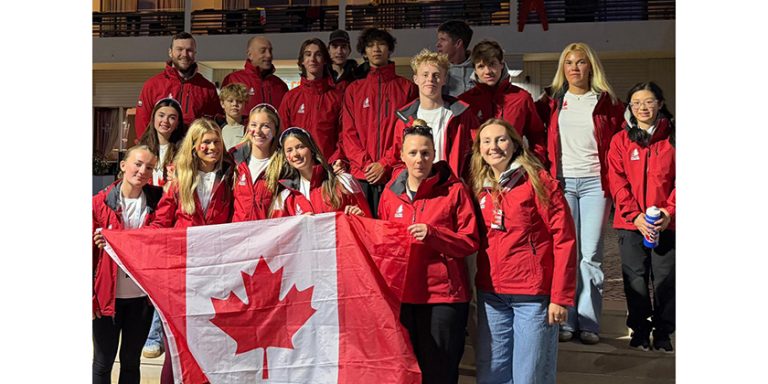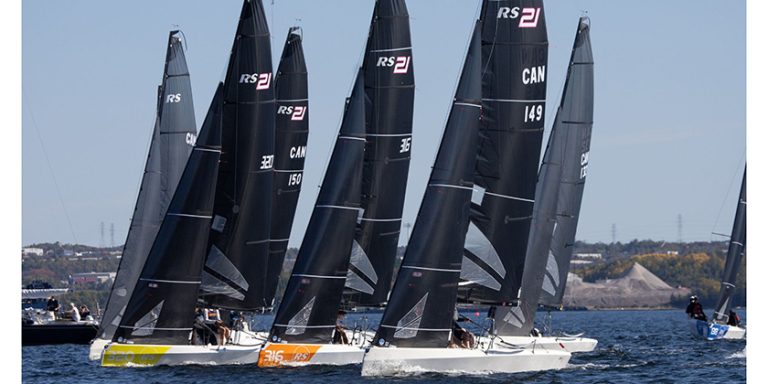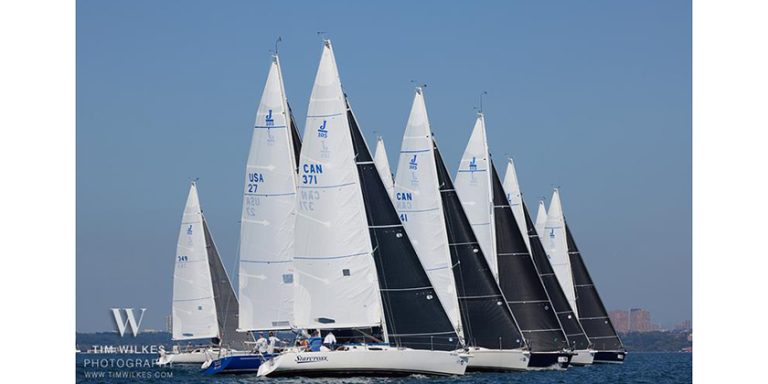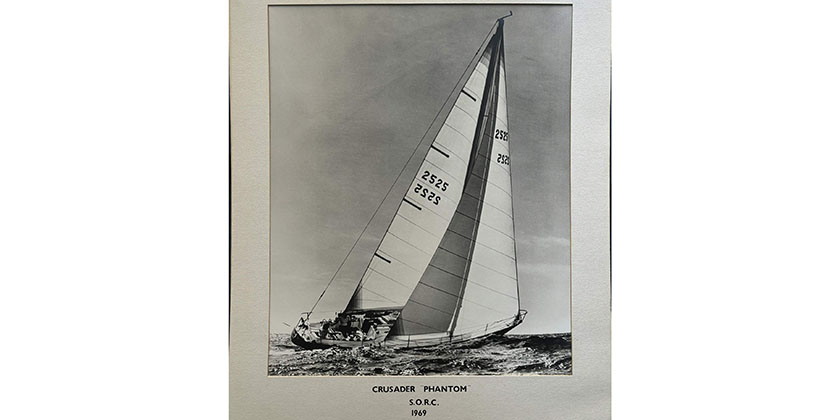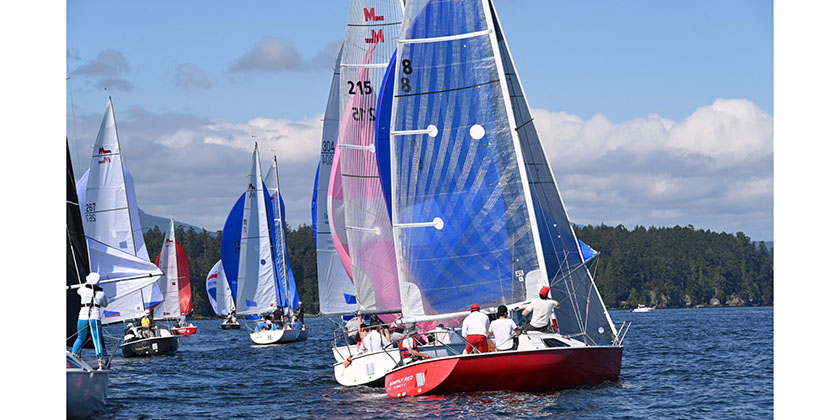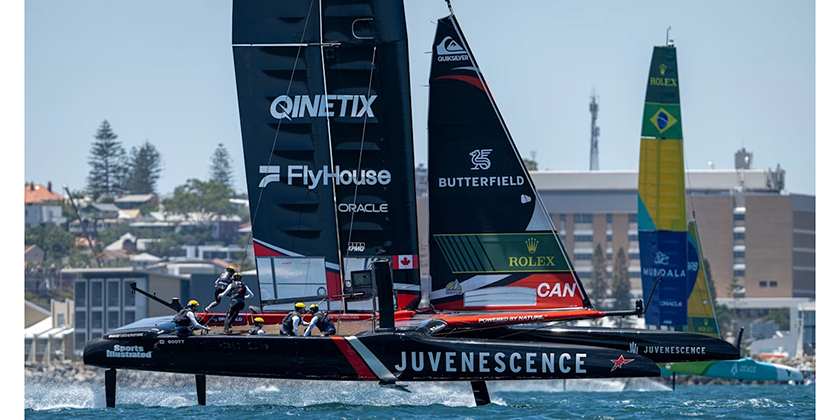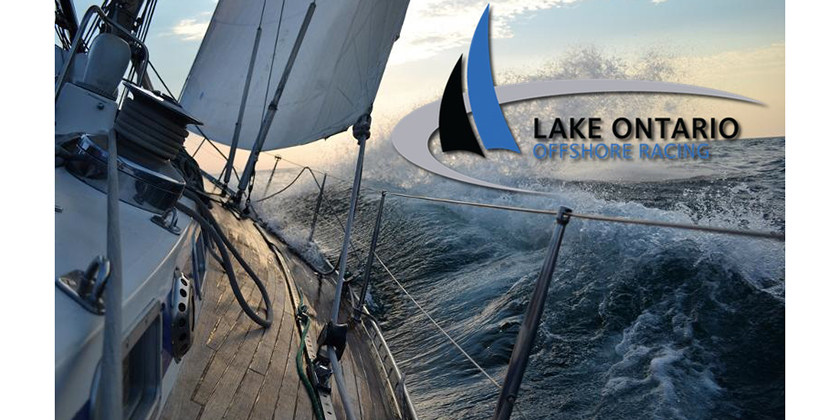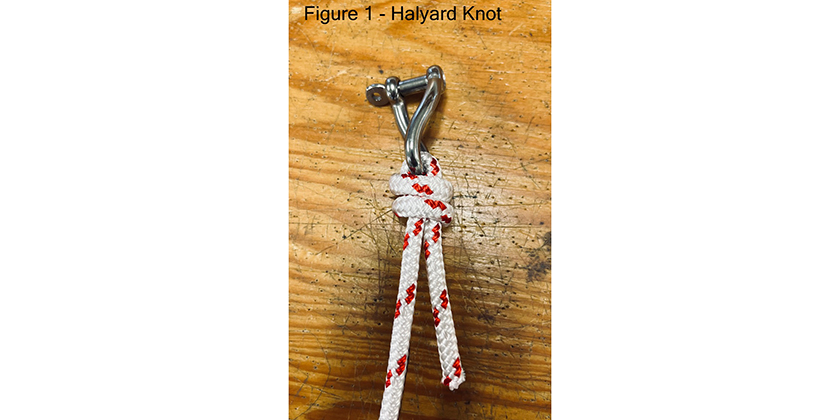Transat Québec Saint-Malo Off to an Exciting Start: Next Stop Saint-Malo
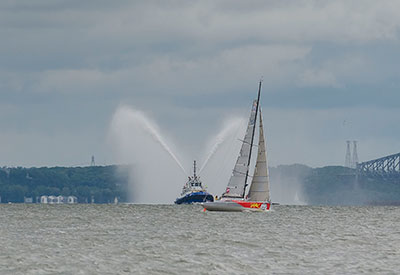
July 12, 2016
Sunday July 10th at 1:00 p.m. the starting flag was raised for the 9th edition of the Transat Québec Saint-Malo race. Four Multi50 yachts were the first to cross the starting line at the foot of the Plains of Abraham. The waters are clear ahead for them to tackle the challenging route down the St. Lawrence River. Fifteen minutes later, the 19 Class40 entrants crossed the line, together with the 50-foot multihull Guadeloupe Dynamique skippered by Luc Coquelin, embarking on a long stretch of tacking into the northeasterly headwind blowing right up the river. With light rain falling and a brisk 20-knot headwind, the fleet embarked on the coastal regatta leg of this Transat on a close reach in the hope of finding favourable conditions in the North Atlantic to pave a fast track home to Saint-Malo.
En route for 2,897 nautical miles of adventure
Under a leaden sky and damp, cool conditions reminiscent of a Route du Rhum sendoff, the four Multi50 yachts carefully followed the Race Committee’s instructions during the countdown to the start. Lalou Roucayrol (Arkema) was the first to cross the starting line in front of the City of Lévis, taking the right side of the river before tacking for the first of many times in the day, a precious few boat lengths ahead of Gilles Lamiré’s French Tech Rennes Saint-Malo. Ciela Village, skippered by Thierry Bouchard, took a higher position along the line and opted to sail a longer first reach toward the north bank of the river. Competitors had to deal with a brisk headwind approaching 20 knots. The Multi50 fleet had the entire afternoon ahead of them here to forge ahead at a fair clip, leaving Quebec City in their wake and skirting the picturesque island in anticipation of a lull in the wind that is forecast this evening.
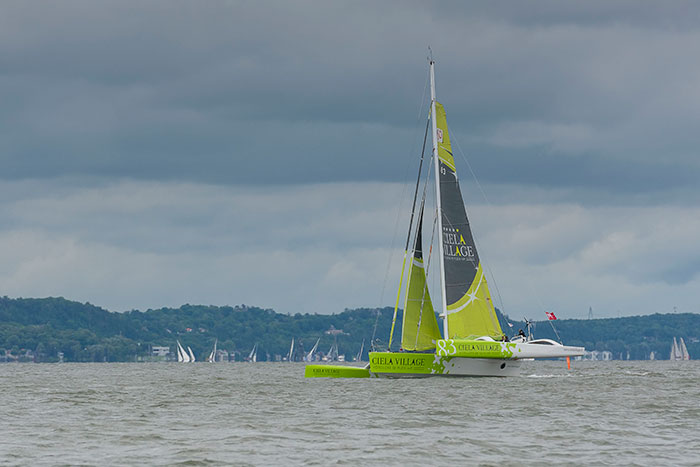
Photo 2 credit: Steve Deschenes
Class40 competition hot off the starting blocks
Fifteen minutes later, two of the big favourites of the race in the Class40 fleet, Thibaut Vauchel Camus (Solidaire En Peloton-ARSEP) and British skipper Phil Sharp (Imerys) left no doubt as to their competitive spirit by pulling ahead right off the starting blocks. Armel Tripon (Black Pepper/Les p’tits doudous by Moulin Roty) and Isabelle Joschke (Generali Horizon Mixité) paid the price for their impatience with individual recalls. Maxime Sorel (V and B) and Spaniard Gonzalo Botin (Tales II) weren’t far behind, quickly staking out positions among the front-runners. This was a more intense, high-pressure start with a tightly-packed fleet of 40-foot monohulls thirsty for action as they raced toward the starting line with the wind freshening even further with gusts of up to 25 knots as the gun went off.
Hitting the brakes for the first time at L’île aux Coudres
Reversing a long precedent of calm, hot weather, the skies were dark and rainy and the wind was blowing hard as this year’s Transat Québec Saint-Malo got underway. Traditionally placid in previous races, the St. Lawrence River decided to up the stakes this year and grace the 24 racing yachts with a northeasterly wind in excess of 20 knots, as well as an ebbing current running at about two knots that was expected to reverse late in the afternoon, right around the time the depression was forecast to weaken. In wind-against-tide conditions like these, the sea state is naturally confused with a short chop that is far from conducive to smooth sailing. The good news is that this transition period—which could even force racers to drop anchor to avoid losing ground, is likely to be shorter than initially expected. This means the Multi50 and Class40 competitors could set off on their way again as early as the middle of the night toward the first mark they need to round at Rimouski, some 155 nautical miles from Quebec City, which the front-runners may reach by as soon as Tuesday evening.
Gateway to the ice fields
Drifting sea ice in the North Atlantic is something that Race Management is keeping a close eye on. The decision has been made on the strength of the latest observations by the North American Ice Service to impose an exclusion zone through which racers are prohibited to sail. Once they pass Newfoundland, Transat Québec Saint-Malo skippers must therefore navigate to the south of a point at latitude 47 degrees north between longitude 53 degrees west and 44 degrees west.
Ultimate Class competitors to start Wednesday, July 13, 2016
To boost the chances of the six multihulls in the race crossing the line as a group (two Ultimate Class yachts and four Multi50s), the decision was made to start the race for Ultimate Class entrants 72 hours after the rest of the fleet. Weather reports following the initial start of the race are forecasting headwinds followed by lighter breezes for the first 24 hours, which will slow the Multi50s’ headstart. Consequently, the start time for the two Ultimate Class yachts Spindrift2 and Musandam Oman Sail has been set for this coming Wednesday, July 13, at 3:00 p.m. local time (9:00 p.m. in France).
Here’s what the competitors had to say:
Manuel Cousin – Groupe Setin
“We were given such a fabulous welcome in Quebec City. Now it’s time to set sail, and we’re stoked and keen to get going. Today’s my birthday, and what a great gift this Transat is!”
Louis Duc – Carac
“I wasn’t especially nervous whhen start day came around. I slept pretty well. We’re already looking ahead of the strating line to the first real weather challenge we’re going to be tackling very soon—as early as this evening, in fact—when the wind drops and the current reverses against us. Fortunately the southwest wind is going to come to the rescue quickly to help us make good headway toward the mouth of the St. Lawrence.”
Benoit Charron – Région Normandie
“For the last four years in Normandy we’ve been scouting for fresh young talent and will be sending a young hopeful (Sophie Faguet) off to sail in the Le Figaro race. We’re shifting into top gear now with our goals in terms of the Atlantic and the Route du Rhum involving a young sailor from Normandy who’s already a seasoned Figaro veteran. The Class40 is a natural choice as there’s lots going on with this class in Normandy. The boat we’re racing already has history, since Edouard Golberry sailed her in The Transat bakerly and finished fourth. We picked her up in great shape in Quebec City and are giving two young guys from Normandy a chance to race—that’s Caliste Antoine, who had never sailed at night before this trip, and Aloïs Kerduel. I’ll be discovering the world of offshore racing and this will be my first Atlantic crossing. You’re just worried you’re going to forget something or not be properly prepared, and you start to feel the pressure. It’s Marc Saint Denis who’ll be navigating. Our two youngsters are going to benefit from our experience. For us it’s about the adventure, but it’s also about the competition. The St. Lawrence is just like the Solent, but it’s 370 miles long!”
Phil Sharp – Imerys
“I’m a solitary kind of sailor. Sailing with a crew is going to help me focus on the navigation and how the boat is performing. I think it’s going to be a lot of fun. I’m expecting the competition to be very stiff indeed, and that’s exciting too. The Transat Québec Saint-Malo is a big race for me. We’re going to be sailing the North Atlantic downwind ahead of the depressions. This will be my first experience in the north, and my first time sailing west to east. I’m hoping it’s going to be a quick crossing in 12-13 days. These Class40 boats are really fast downwind, and the design has changed tremendously in the last ten years. They’re built for racing and are designed to be sailed hard. They’re downright uncomfortable and noisy too. I’ve really had to adapt quickly to this new generation of boats compared to what I was sailing in 2006. Adrien Hardy and Milan Kolacek are guys I’ve known since the Mini, when we were rivals. I have a lot of respect for them. They have some fascinating experience and when they’re competing they always push their limits to bring the result home. The bar is very high but we’re setting out to get a result. Thibaut Vauchel Camus, Gonzalo Botin, and the Mach 40s are some of the favourites, but there are at least seven boats that have a shot at winning. The first few days are going to be very demanding. We have to be in a good position when we come out of the St. Lawrence so we can go full steam ahead in the Atlantic.”
All programming information and details on registered crews can be found online at www.transatquebecstmalo.com

